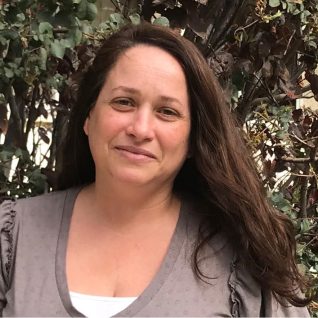החוקרת פרופ"ח שירלי אברג'ל חוקרת בתחום החינוך הכימי ומתרכזת בשילוב של מסוגלות עצמית, מטה קוגניציה, הבנה מושגית בכימיה, הן של פרחי הוראה ומורים והן של תלמידים. ד"ר אברג'ל סיימה את לימודי הדוקטורט בטכניון בשנת 2011 ואת מחקר הפוסט-דוקטורט ביצעה באוניברסיטת מיין בארצות הברית בשנים 2011-2013.
פרופ"ח אברג'ל משלבת במחקרה שיטות איכותניות וכמותיות לניתוח נתונים והינה בעלת ניסיון במחקר העוסק בפיתוח ידע תוכן פדגוגי וידע בהערכה ופיתוח מקצועי של מורים לכימיה. ניסיונה במחקר העוסק ברפורמות חינוכיות בדגש על הבנה מושגית בכימיה של תלמידים והוראת הכימיה והמשלב חקר של תלמידים ומורים תורם להתפתחות תחום הוראת הכימיה הן בתיכון והן בחינוך האוניברסיטאי. ד"ר אברג'ל במחקריה מבססת את הקשר בין ידע המורה הכולל ידע תוכן פדגוגי בהוראת כימיה (למשל ידע על שיטות הוראה שמקדמות הבנה מושגית בכימיה, יכולת המורה לפתח חשיבה מסדר גבוה בכימיה אצל התלמיד) וידע בהערכה (למשל ידע העוסק כיצד יש להעריך ולמה יש להתייחס בהערכת תלמידים). סוגי ידע אלו הינם בעלי השפעה על למידת התלמיד ופיתוח יכולות והבנה מושגית. חקירה ופיתוח של שיטת הוראה והערכה הינו תחום המוביל רפורמות חינוכיות בארץ ובעולם.
למידע נוסף על מחקריה ופעילותה של פרופ"ח שירלי אברג'יל יש ללחוץ על הקישור



